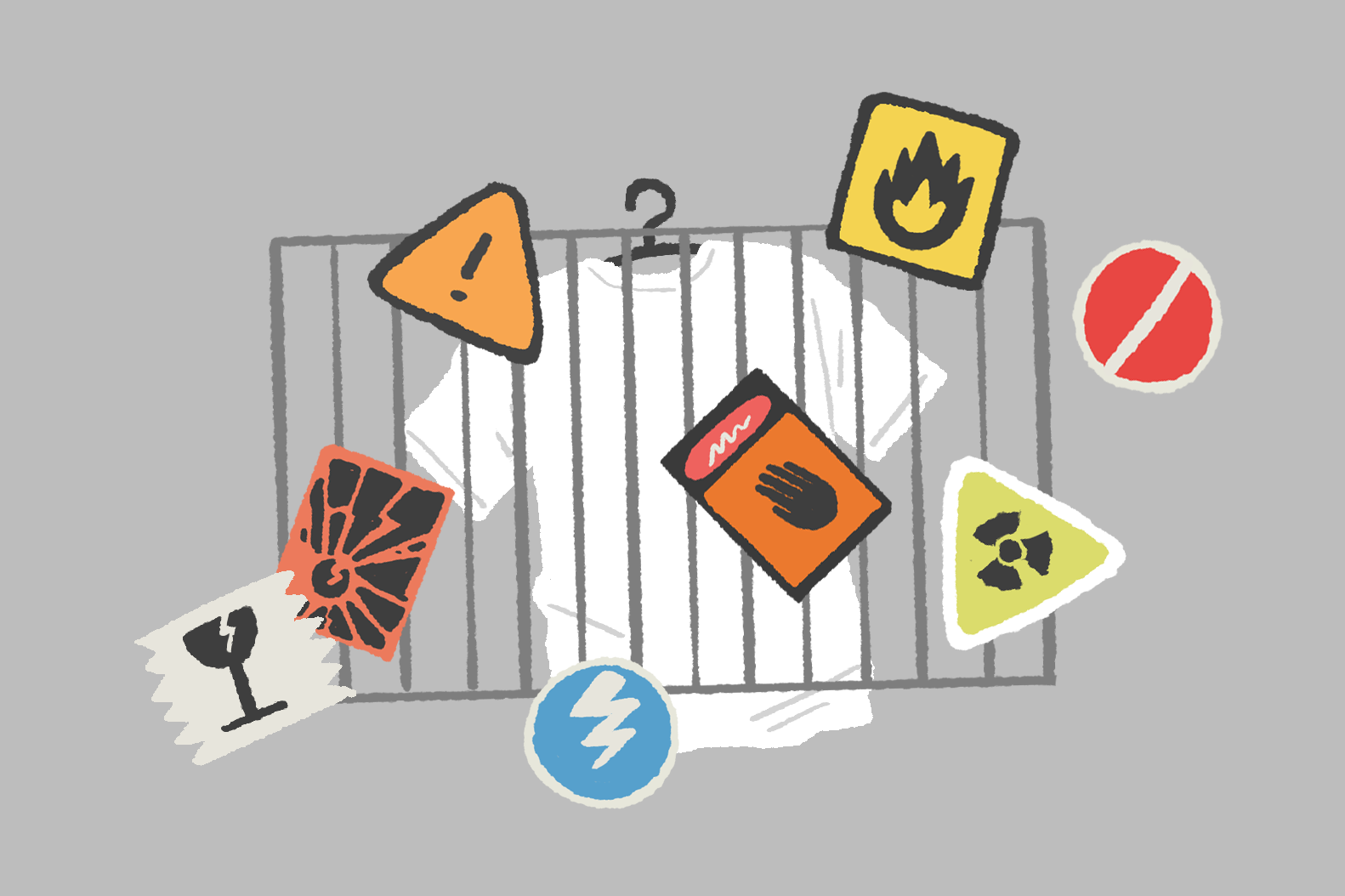In the silence of the empty school toilet, my friend’s voice trembled as she shared how violent thoughts seemed to plague her mind involuntarily.
It was my first time listening to a friend confide in me about her mental health.
At that time, I didn’t really understand what she meant, so I just hugged her as she cried.
There were some words of encouragement and assurance that swam around in my head, but they remained unspoken in my uncertainty.
I remember praying for her before we parted that day. We never talked about this incident, until three years later when we finally had a good conversation regarding mental health.
Since then, I’ve learnt that our words are really powerful. They can tear someone down or build someone up. In fact, the Bible says that “the tongue has the power of life and death, and those who love it will eat its fruit” (Proverbs 18:21).
I’m no expert, but from one heart to another, here are some statements that we can all unlearn when it comes to having a conversation with someone living with mental illness.
#1: “You don’t seem like the ‘type’ to get mental illness.”
You might feel as shocked as I did when someone shares their mental health struggles with you. That is totally understandable.
But at such a crucial juncture, it’s important that we don’t perpetuate false stereotypes about who is more or less prone to “get” mental illness.
While it’s true that mental illness might have genetic or biological roots, environmental factors also play a huge role in our mental wellbeing.
The point is that no one can tell when mental illness will strike. If we’re not careful with our words, we might cause them to feel like they’ve let us or themselves down in some way, or compound their shame at being perceived as weak or incapable.
These feelings might be intensified for males, many of whom find it more difficult to share about their emotions and mental states due to unhealthy societal expectations that males must be “tough” and not ask for help.
The last thing we want to do is to make the confider feel like a failure.
What we can consider instead is to thank them for sharing vulnerably and continue listening to their story.
Assure them that they are not weak or less capable in your eyes just because they have mental health struggles. Reaffirm your love for them, especially if the confider is a family member.
An open heart and an open mind will help create a safe space for them to feel heard and understood.
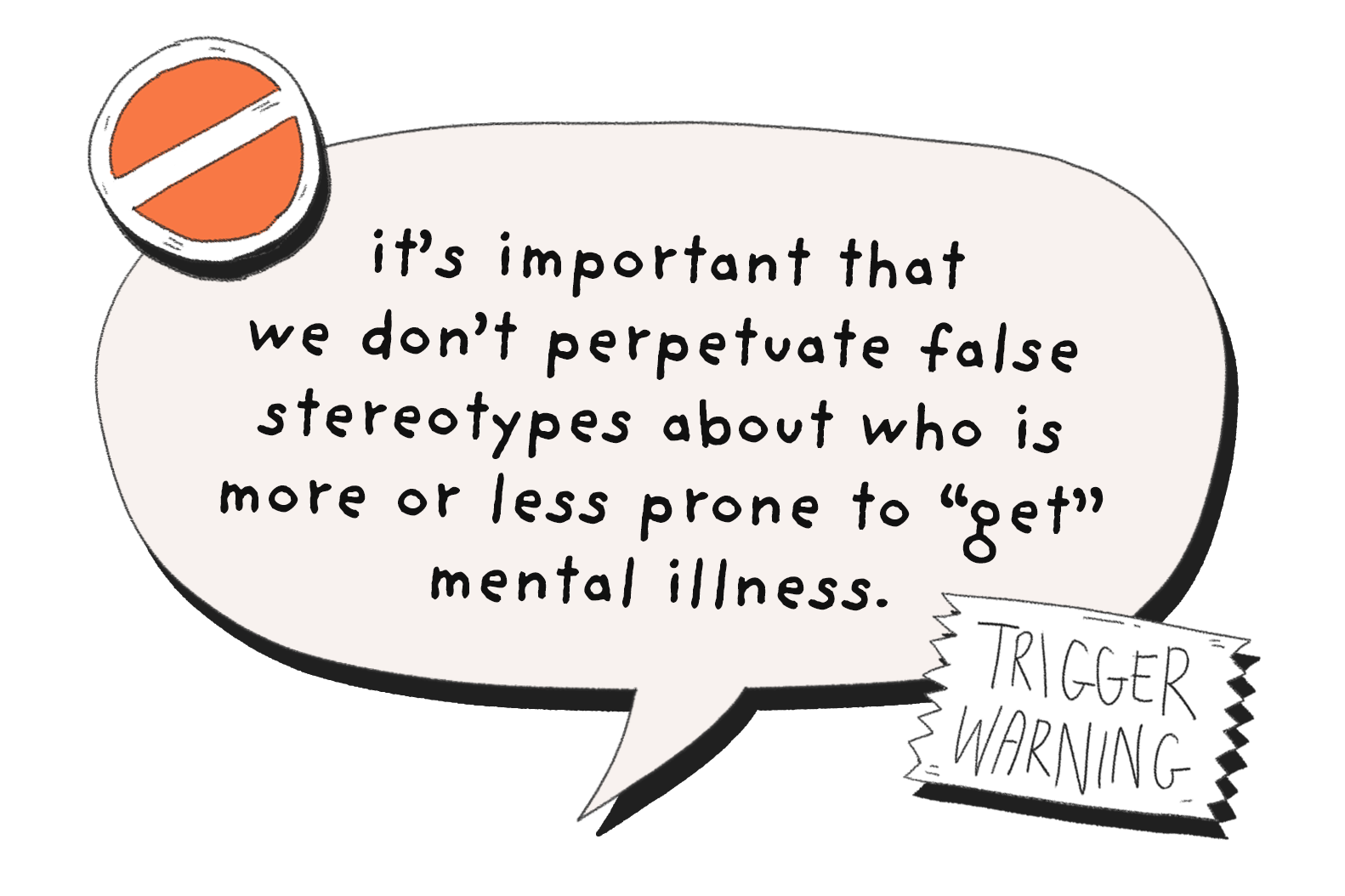
#2: “At least it’s not that bad. It could be worse.”
I’m not proud to say that in my teens, this was my go-to statement.
Whenever my friends shared their problems with me, I would sometimes tell them “at least you didn’t fail” or “at least it’s over”.
I wanted to point them to the brighter side of things amidst all the “negativity” they were focusing on.
That was until one of my youth leaders at church made me aware of the ills of these “at least” statements.
Such statements can trivialise feelings and discount others’ mental states.
Saying “at least” also elicits comparison, and suggests to the listener that they perhaps don’t deserve to dwell on their mental illness since there are others around the world who have it worse.
Making comparisons do not help as everyone’s experience of mental health issues is unique.
Instead of comparing our friends’ pain with other horrible situations, we should seek to empathise with them.
Let them share with you how they really feel, and don’t dismiss their emotions.
Try gentler statements such as “that must have been tough for you” and if you want to clarify what they mean, do so gently without accusation by asking: “Could you tell me more about that?”
Give your friends the space to unload and express their thoughts and feelings first.
When they have done so, and are ready to receive advice and an alternate perspective, we can then gently guide them towards practical help and hope.
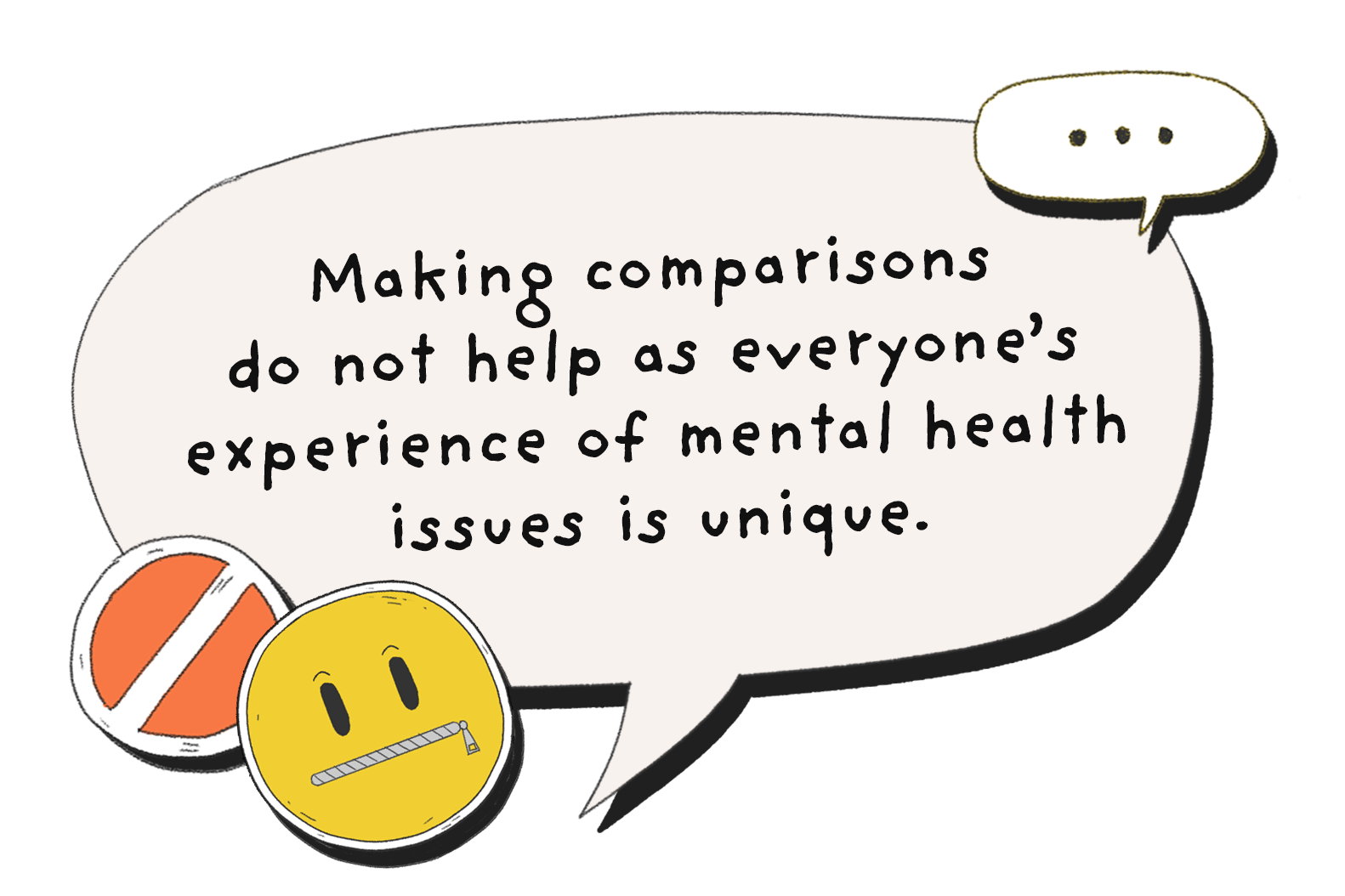
#3: “Just pray and it’ll go away.”
It’s true that there is power in prayer. The Bible records many instances of people being healed by a touch or word from God. Such miracles still do happen today.
However, this statement fails to take into account the complexity of mental illnesses and that help or healing will often involve medication and psychiatric treatment.
The statement is also problematic because it creates the false dichotomy that if one is plagued by mental illness, it must be because he or she did not pray enough.
Unnecessary feelings of guilt and despair result when Christians wrongly associate mental illness with a lack of prayer. Mental illness can happen to anyone.
And mental illness isn’t something that’s easily treated like the common flu. Many who live with mental illness know that it is not something that “goes away”, but something they have to live with for the rest of their lives.
It’s important to check the posture of our hearts if we have been using this phrase.
Are we saying it dismissively, having become exasperated to hear about the same struggles repeatedly? Ephesians 4:2 exhorts us to be completely humble and gentle, and to patiently bear with one another in love.
With the Holy Spirit’s help, we can share God’s love with those around us by patiently listening and walking with the people around us who suffer from mental illness.
To those who are living with mental illness, it is important to remember that your prayers are not useless.
So what about prayer? To those who are living with mental illness, it is important to remember that your prayers are not useless.
Your prayers might well be answered in other unexpected ways beyond healing; God can alleviate our pain by surrounding us with community, and the Holy Spirit may bring to mind songs of comfort and victory as we journey with Him.
It’s often in moments of suffering and pain that we are acquainted with Jesus most dearly.
You never know what a single prayer does in the spiritual realm, so don’t stop praying for Jesus hears you!
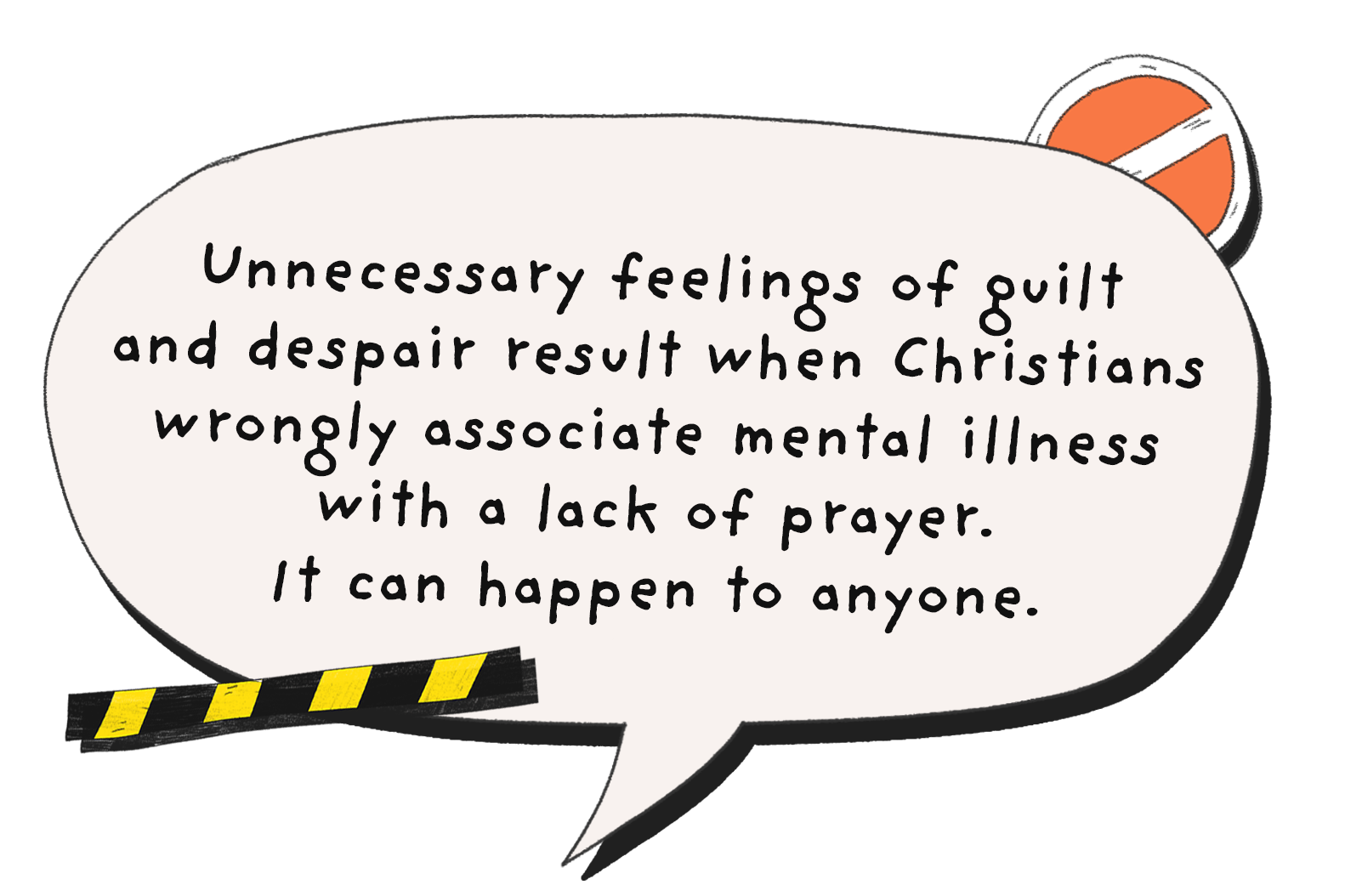
#4: “I’ll always be there for you!”
Saying this can be tempting as it shows how we are loyal to our friends and family, ready to jump in and save the day.
However, can this warm and fluffy statement hold up under the weight of commitment you are essentially promising?
Realistically speaking, the answer is no.
Unless you are prepared to pick up phone calls in the middle of the night, or rush to your friend’s aid at the slightest thing, the truth is that we can never be there 24/7 for our friends or family members.
Saying otherwise is unrealistic and unhealthy for both parties. While well-intentioned, such statements create unrealistic expectations and cause disappointments.
So while communicating our support for our friends and family members, it’s important to make expectations clear.
There should be no room for a saviour mentality; journeying with someone living with mental illness does not equate to them depending on you all the time.
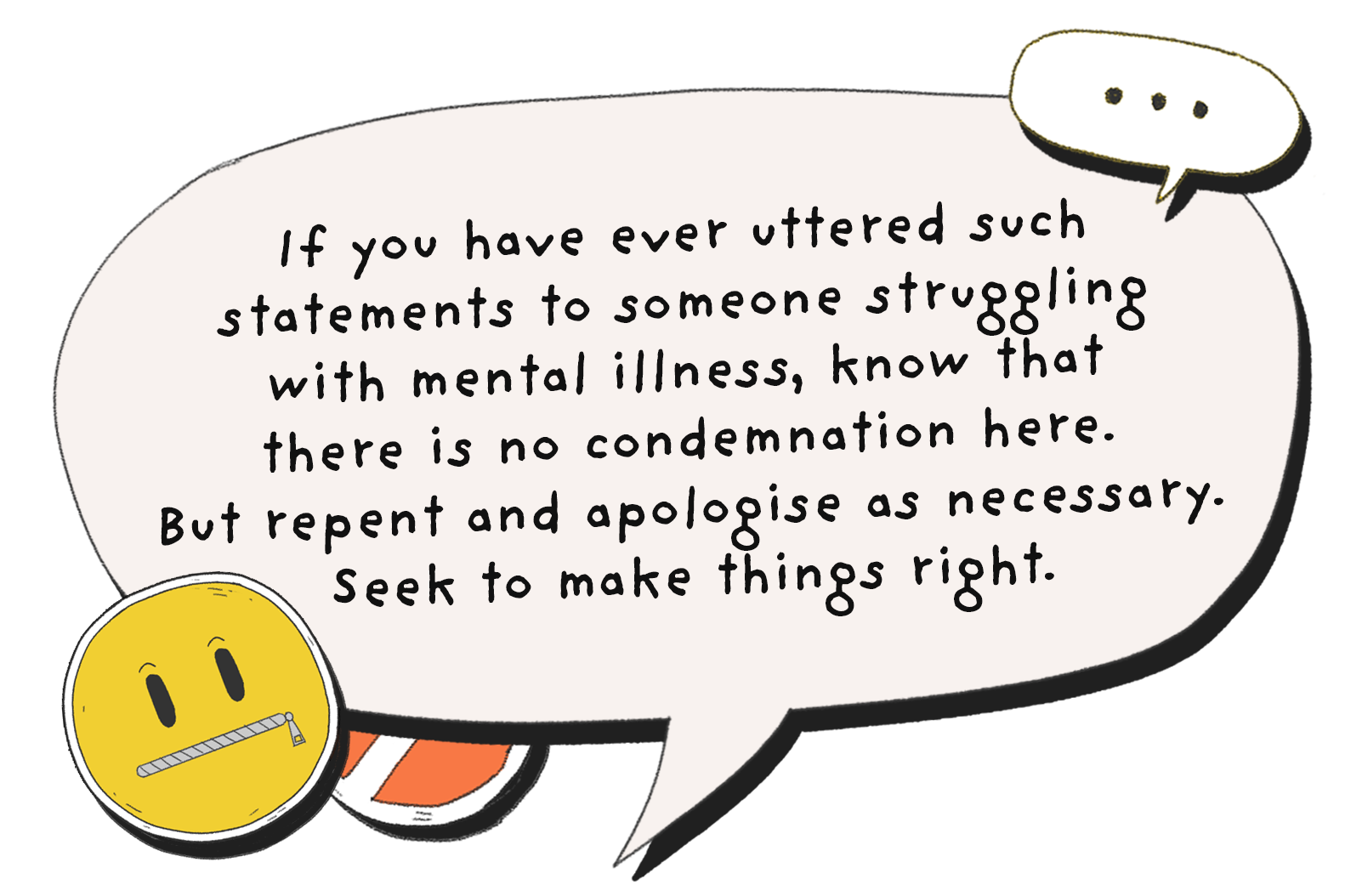
#5 “This too shall pass.”
This famous saying is often paired with a philosophical look and a pat on the back. It’s used with good intentions to give those living with mental illness some hope.
However, this statement can be really difficult to believe, because mental illness changes the way we look at life.
Using trite phrases to “encourage” a person to look past real problems like suicidal ideation and trauma is problematic to say the least, given that the person can’t even envision a future past the next five minutes in that painful moment.
What would be better, is to quietly sit with them in those moments and just be there. Your physical presence with them grounds them and gives them deep assurance that they aren’t alone.
And though the phrase sounds biblical, it isn’t found anywhere in the Bible.
The closest verse that mirrors the phrase is 2 Corinthians 4:17, which conveys a similar idea that our troubles on this earth are fleeting, so we can take heart that our suffering will not last forever — especially not in heaven.
If we want to comfort others with godly words, we should go back to the living Word of God.
Let us be careful with our words for they carry great weight, and as God’s ambassadors we are meant to speak life and speak love.
If you have ever uttered such statements to someone struggling with mental illness, know that there is no condemnation here.
But repent and apologise as necessary — seek to make things right.
We can all learn to be more sensitive and empathetic to those around who are living with mental illness.
Let’s strive to create a safe space for our friends wherever we go!
- Which of these statements stood out to you the most and why?
- How can you adapt the conversations you have about mental health such that they are more empathetic and understanding?
- This week, what is one practical way that you can be a blessing to someone living with mental illness?








